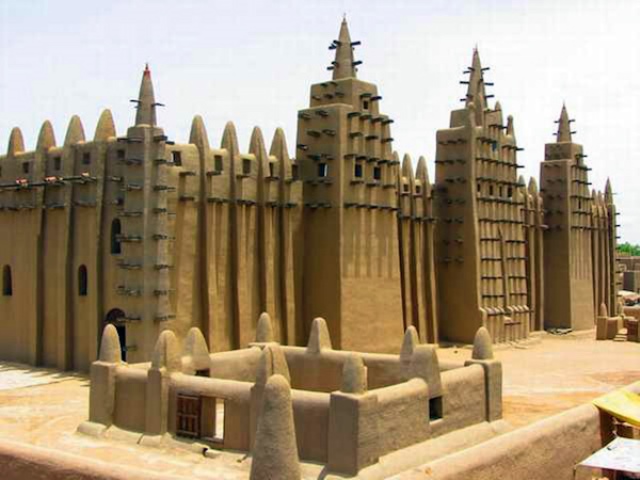Last Updated on March 11, 2023
Genghis Khan, the name evokes a sense of power, mystery, and conquest. He is one of the most legendary figures in history, and his impact on the world cannot be overstated.
Known for his unmatched military prowess, he is credited with founding the Mongol Empire, one of the largest empires in history, stretching from Asia to Europe.
In this article, we will explore the life and legacy of Genghis Khan and delve into the fascinating story of one of the most remarkable generals in human history.
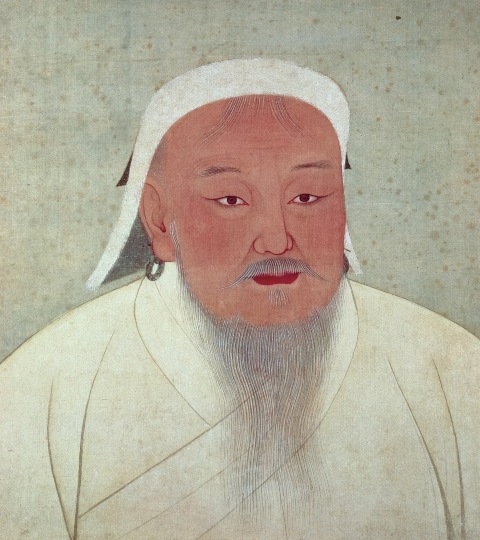
Genghis Khan – Early Life and Rise to Power
Genghis Khan, the legendary founder of the Mongol Empire, had a tumultuous childhood. It was marked by tragedy, betrayal, and a fierce will to survive. Born in the early 1160s in what is now Mongolia, Genghis Khan’s birth name was Temujin. His father, Yesugei, was a local chieftain who had already established a reputation as a brave warrior and skilled strategist.
However, when Genghis Khan was just nine years old, his father was poisoned by a rival tribe. This left his family vulnerable and unprotected. Genghis Khan’s family was forced to flee and endure harsh living conditions on the Mongolian steppe. This event marked the beginning of Genghis Khan’s tumultuous journey to becoming one of history’s most feared conquerors.
Despite facing numerous challenges and betrayals, Genghis Khan proved to be a skilled leader and strategist. He began to form alliances with other tribes, uniting them under his leadership to create a powerful force. He also demonstrated his military prowess by leading successful raids against rival tribes and establishing a fierce warrior reputation.
His rise to power culminated in a historic meeting with Toghrul, the khan of the Kerait tribe. In a remarkable display of diplomatic skill, Genghis Khan persuaded Toghrul to ally with him and recognize him as the rightful leader of the Mongols. This alliance gave Genghis Khan the military backing he needed to launch a full-scale campaign to unite all the Mongol tribes under his leadership.
With Toghrul’s support, Genghis Khan was able to defeat his rivals and solidify his power over the Mongols. He also expanded his empire by launching successful campaigns against neighboring tribes and kingdoms. By the time of his death in 1227, Genghis Khan had established the largest empire in history, stretching from Asia to Europe.
Read: Interesting Facts About Alexander The Great
The Mongol Empire
Founded by Genghis Khan in the early 13th century, The Mongol Empire was one of the largest empires in history, stretching across much of Asia and Europe.
According to the estimated peak area, only the British Empire was larger than the Mongol Empire. It was also one of the most remarkable, with a unique culture and military strategy that helped it conquer vast territories and establish a lasting legacy.
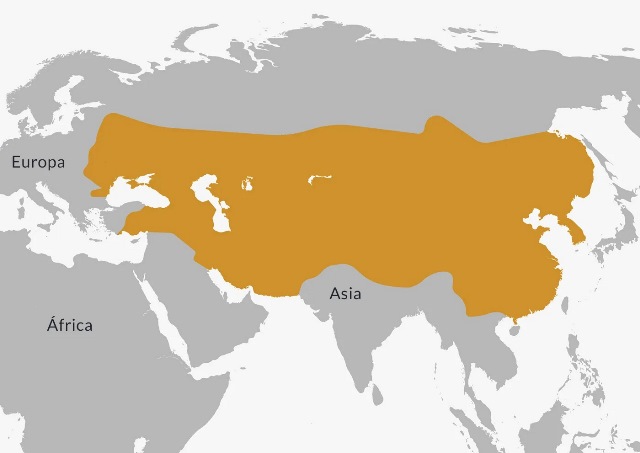
The Mongol Empire was built on a foundation of military strength and discipline. Genghis Khan was a brilliant strategist who developed a military system emphasizing mobility, speed, and surprise.
He organized his troops into units known as tumens, which comprised 10,000 soldiers each. These tumens were highly mobile and could cover vast distances quickly. This allowed the Mongols to launch surprise attacks on their enemies.
Another key component of the Mongol military strategy was their use of cavalry. Mongol cavalry was some of the best in the world, equipped with powerful composite bows and swords. They were also trained to fight on horseback, making them highly effective in battle.
Psychology in the Mongolian Army
The Mongols also used psychological warfare, often spreading false information and rumors to sow fear and confusion among their enemies.
In addition to their military strength, the Mongols were skilled at governing their vast empire. Genghis Khan established a legal code known as the Yasa, which provided a framework for governing the empire and ensuring justice for all its citizens. He also encouraged religious tolerance, allowing people of different faiths to practice their religions freely within the empire.
Under Genghis Khan’s successors, the Mongol Empire continued to expand, conquering territories in China, Persia, and Russia. They also re-established the Silk Road between 1207 and 1360 CE. This large trade network which was first discovered by Zhang Qian in 138 BC connected Asia with Europe and helped to spread ideas, goods, and technologies across the empire.
Furthermore, the Mongol Empire had a lasting impact on world history and culture. They introduced new technologies, such as gunpowder affixed to arrows.
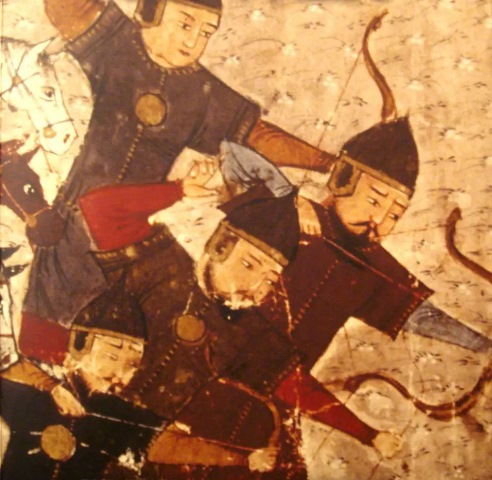
The Mongols also helped to spread the use of paper currency. In addition, they promoted cultural exchange and artistic development. Mongol rulers patronized the arts and brought together scholars, artists, and thinkers from across the empire.
The Legacy of Genghis Khan
Genghis Khan’s legacy continues to be felt today, nearly 800 years after his death. He was a remarkable leader who transformed the world and left an indelible mark on history. His impact can be seen in many areas, including culture, politics, and military strategy.
Impact on Military
One of Genghis Khan’s most enduring legacies is his military prowess. He was a brilliant strategist who revolutionized warfare, introducing new tactics and innovations that would be used by armies around the world for centuries to come.
His use of cavalry and his emphasis on speed, mobility, and surprise were key factors in his success. And his ability to unite and command diverse armies was also highly influential.
Impact on Socio-Cultural and Political Landscape
Genghis Khan’s legacy also extends to culture and politics. Under his leadership, the Mongol Empire was a highly diverse and tolerant society. People of different races, religions, and cultures lived together harmoniously.
He encouraged cultural exchange and the spread of ideas and established a legal code that ensured justice and fairness for all citizens.
The Spread of the Mongolian Language
Genghis Khan’s influence can also be seen in the global spread of the Mongolian language and culture. Today, Mongolian is spoken by more than 8 million people worldwide. Mongolian art, music, and literature continue to be celebrated and studied.
However, Genghis Khan’s legacy is not without controversy. Genghis Khan was renowned for his brutal conquests, but he was also a cunning strategist and a brilliant negotiator. He was known for his tolerance of religious and cultural diversity and understood the value of forging alliances and treating his conquered subjects with respect.
He laid the groundwork for a new era of Mongolian power with his vision and leadership, and his influence on the world will be felt for many years to come.
Read: How Did the Roman Empire Fall?
Controversies and Criticisms
While Genghis Khan’s legacy is generally viewed positively, there are some controversies and criticisms surrounding his methods and legacy.
One of the most significant criticisms of Genghis Khan is his reputation as a ruthless conqueror. He is responsible for the deaths of more than 40 million people. It is possible that his attacks of burning cities, enslaving populations, and using human shields reduced the world’s population at the time by around 11%.
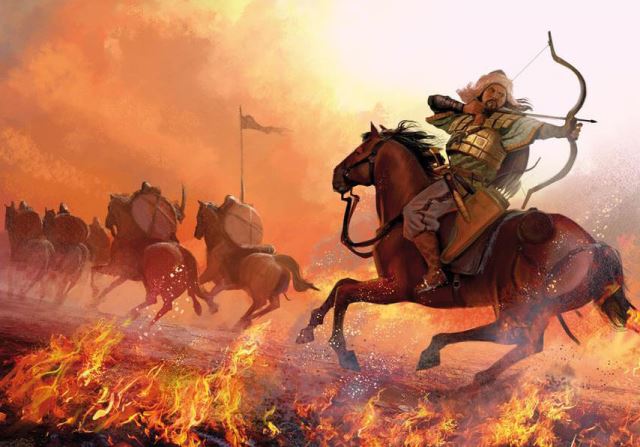
While these actions were common during warfare then, they are now widely condemned as atrocities.
Another controversy surrounding Genghis Khan is his treatment of women. He is said to have had multiple wives and concubines. Historians report he engaged in forced marriages and sexual violence. Again, these practices were common at the time.
There is also debate over the impact of the Mongol Empire on world history and culture. While some see it as a force for progress and globalization, others view it as a destructive force that caused widespread suffering and disruption.
Critics argue that the Mongol Empire’s expansion and conquests were driven by greed and a thirst for power rather than a genuine desire to improve the lives of the people it ruled over.
Nonetheless, the impact of Genghis Khan on the world cannot be overstated. His victories altered the course of history and influenced the geopolitical structure of Asia and Europe for many centuries.
The Mongol Empire created new trade routes and promoted the cross-cultural exchange of ideas and technologies. Genghis Khan’s legacy also lives on in the laws and customs of the Mongolian people, who continue to honor his memory today.
Before you go…
Hey, thank you for reading this blog to the end. I hope it was helpful. Let me tell you a little bit about Nicholas Idoko Technologies. We help businesses and companies build an online presence by developing web, mobile, desktop, and blockchain applications.
We also help aspiring software developers and programmers learn the skills they need to have a successful career. Take your first step to becoming a programming boss by joining our Learn To Code academy today!









